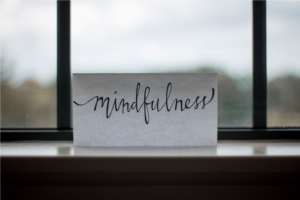Most of us could not escape the commercialism throughout the holiday season without hearing how to get physically fit or healthy living or joining a gym will improve our life! So what makes our lives better? Spiritual fitness! How does that happen – and what does it look like in real life?
 The answer is given through Proverbs 3:1 “Good friend, don’t forget all I’ve taught you; take to heart my commands.” God insists that we trust Him fully and not try to figure out everything on our own. Once we build our faith and our relationship with God, that strengthens our fitness.
The answer is given through Proverbs 3:1 “Good friend, don’t forget all I’ve taught you; take to heart my commands.” God insists that we trust Him fully and not try to figure out everything on our own. Once we build our faith and our relationship with God, that strengthens our fitness.
“Physical training is good, but training for godliness is much better, promising benefits in this life and in the life to come.” (1 Timothy 4:8) We exercise our spiritual fitness when we can listen for God’s voice in everything we do or go. Taking an honest look at ourselves is often the best way to evaluate where we are and where we want to go.
We maintain a sense of self-esteem when we can handle the daily setbacks and when our goals or plans are not successful. It first starts with our thoughts, the way we think. Cognitively, we have to retrain our thoughts and think of what is true about ourselves and know we will be ok when there are delays in our resolutions.
Every year brings us an opportunity to look back with hindsight and a bit of foresight. We get to remember God’s faithfulness, goodness, mercy, and endless grace bestowed upon us this past year, to consider how He lovingly taught each of us more of what it means to walk by faith and to know that he will never fail to do so in each day forward.
After a year full of growth and challenge, we pause for a moment to take a breath, give thanks, grow in awareness of God’s love, and seek hope for the journey ahead with self-esteem. It is beneficial to look back at our experiences and, with an open heart, embrace the path before us and usher in the new year.
This is now the third pandemic year, and although it has lessened but has still felt like an intricate passageway with blind alleys. When we think this pandemic is behind us, we see new variants that give us pause, leading us away from a “return to a new normal.” But like a maze, spiritual fitness can be a foundation of self-discovery and awareness, leading you to your center.
Weaving self-esteem into our New Year’s resolutions.
 As the new year begins, we reflect on resolutions or desires for the weeks and months ahead. And, as we continue to navigate a world full of complex and overwhelming challenges, starting a practice where we can carve out space for listening to God’s call in our life might be helpful and a good foundation for building our self-esteem and creating realistic resolutions for the new year.
As the new year begins, we reflect on resolutions or desires for the weeks and months ahead. And, as we continue to navigate a world full of complex and overwhelming challenges, starting a practice where we can carve out space for listening to God’s call in our life might be helpful and a good foundation for building our self-esteem and creating realistic resolutions for the new year.
The Bible certainly encourages us to examine our lives and resolve to change them; if necessary, it makes sense to use this as a new year’s resolution.
Reasons why New Year’s resolutions fail:
- Resolutions are unrealistic and attainable.
- Lack of self-esteem and/or confidence
- Not making the sacrifices necessary to reach them.
- Unable to make personal changes.
- Our own will is not strong so we must seek God’s will in His word.
- We are still determining what we want.
- We are not content in every circumstance.
- We may want something that no longer serves us later.
As our interests change, our desires elevate and mature as we grow in wisdom and gain self-esteem. We need God to guide our passions and lives. We can sometimes become hyper-focused on the future and unsatisfied with the present. While we should plan for our future, it is not guaranteed.
Our unsuccessful resolutions can teach us how to shift our focus on how God cares for us. True contentment in the grace and hope of Christ is not circumstantial. We sometimes fail to comprehend our value because our focus is not on God’s teaching and what he has accomplished for us, and we are ineffective at appreciating the grace we are given daily.
Another thing to look out for is that our resolutions can lack depth in knowledge, reasoning, or character, but even the more profound resolutions and our lack of success in keeping them show a need for change. We are not always what we should be and desire to be different. The transformation we seek is valid, but how we pursue it may need to be revised.
How to make effective resolutions.
Make sure your resolutions align with God’s Word and with God’s focus. Set realistic resolutions that are SMART:
Specific. Clearly state what you intend to focus on.
Measurable. Say it using numbers! Identify your current standard and set goals from there.
Attainable. Use language indicating what you are going to do.
Realistic. Set goals that are within your reach and build on them from there.
Time-Based. Avoid open-ended goals. Set a reasonable time limit.
 When creating effective resolutions, we should seek counsel, and accountability, from others in Christ. By Praying over our new years’ resolutions and submitting them to God for his guidance and direction. This is also a time to begin listening to His quiet invitation to stillness, which can build up our self-esteem. Allowing ourselves the opportunity to hear what advice our spirit wants us to take.
When creating effective resolutions, we should seek counsel, and accountability, from others in Christ. By Praying over our new years’ resolutions and submitting them to God for his guidance and direction. This is also a time to begin listening to His quiet invitation to stillness, which can build up our self-esteem. Allowing ourselves the opportunity to hear what advice our spirit wants us to take.
Instead of placing all our hope in a list of goals, let us surrender our desires to God in a New Year’s prayer by asking God for help and strength. Begin the New Year by turning to Jesus Christ and inviting Him into your life. Then ask Him to help you become the person He wants us to be. Paul did this, and that’s why he could say, “I can do all this through him who gives me strength.” (Philippians 4:13).
Spiritual fitness.
When it comes to our spiritual fitness and health for the new year, we should also stop to reflect on if we are doing anything to hurt ourselves spiritually or setting back any healing we are working toward.
For 2023 let us focus on spiritual resolutions as much as physical resolutions by turning to God and trying to exercise our faith more by building our self-esteem with the daily reading of God’s word. We can feed our souls with healthier nourishment that feeds us spiritually. “Take the time and the trouble to keep yourself spiritually fit.” (1 Timothy 4:7).
In other words, it is beneficial to be spiritually fit. Spiritual fitness requires spiritual nutrition. Just as the body needs the proper daily nourishment of food, spiritual fitness requires the proper daily nourishment of spiritual food. Matthew 4:4 reads, “Man does not live on bread alone, but on every word that comes from the mouth of God.”
The truth is that no matter how often we are unsuccessful, God still loves us and longs to spend time with us. Below are some examples of ways to exercise our faith and self-esteem in daily life for the new year to stay spiritually fit in this new year:
- Pray more.
- Spend time in God’s Word daily.
- Attend church regularly.
- Take a break from social media and worldly entertainment and enjoy Christian content.
- Follow Christ’s life, truth, and ways.
- Be fishers of men.
- Fellowship with God, constantly.
- Have the readiness to go.
- Stand firm in our identity.
- Seek pureness.
But just like physical fitness, we must not give up, keep getting back out there, and start working on our mind, body, and spirit.
In conclusion.
 Life can be challenging. Following through with simple commitments can even be problematic when bombarded by daily matters. Whether or not you set resolutions for 2023, do not place your hope in your ability to change yourself alone. God can only transform us.
Life can be challenging. Following through with simple commitments can even be problematic when bombarded by daily matters. Whether or not you set resolutions for 2023, do not place your hope in your ability to change yourself alone. God can only transform us.
Resolve this year to praise him for what he has done and seek to become more like him by this time next year. We should not spend time dwelling on our faults and how we did not meet our goal but call to mind how God was with us throughout the day, where we received his grace, and how we could respond to grace better tomorrow.
“Mindfulness”, Courtesy of Lesly Juarez, Unsplash.com, CC0 License; “Yoga”, Courtesy of Brandon Erlinger-Ford, Unsplash.com, CC0 License; “Yoga”, Courtesy of Madison Lavern, Unsplash.com, CC0 License; “Enjoying the View”, Courtesy of Denys Nevozhai, Unsplash.com, CC0 License









